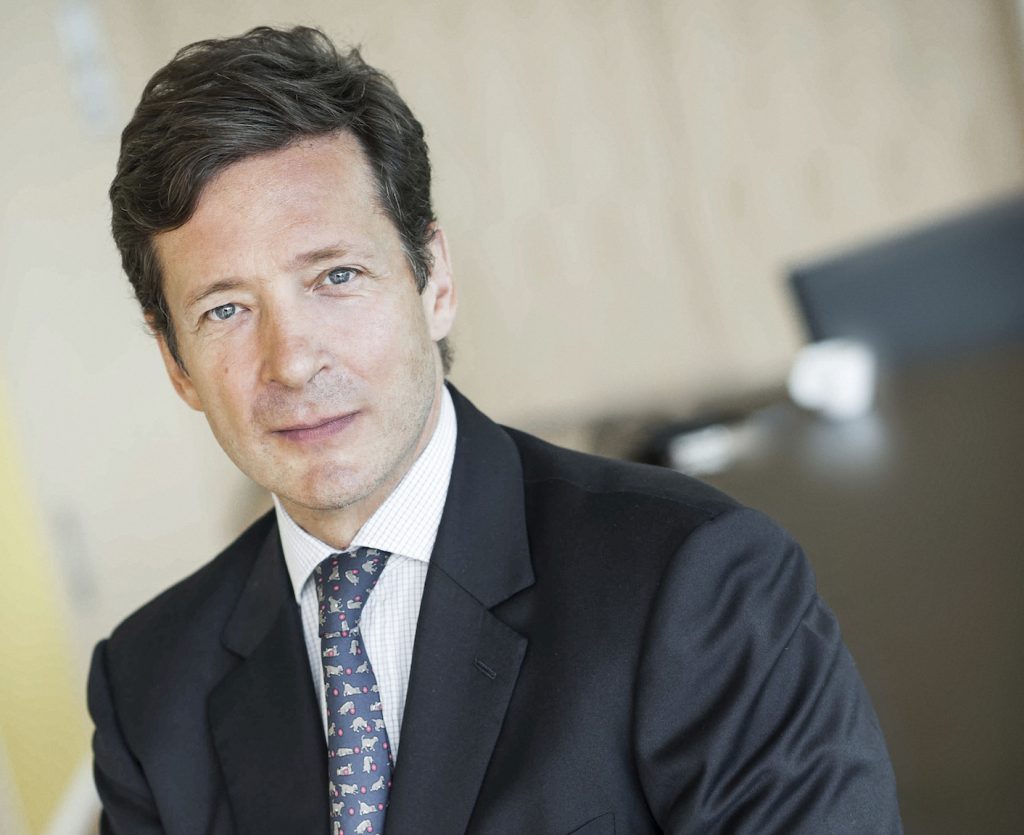For more than a decade, the Luxembourg Stock Exchange has been pioneering sustainable capital markets — in the process convincing institutions such as the World Bank and the European Commission of its credentials, says Luxembourg for Finance CEO Nicolas Mackel.
In an interview with VitalBriefing, he says, the EU’s sustainable finance legislation is now helping push the country’s fund industry into the front line.

Thanks to a series of pioneering initiatives — some of them dating back a decade and a half — Luxembourg is already well positioned to play a leading role in the European and global evolution of sustainable finance, according to Nicolas Mackel, CEO of Luxembourg for Finance and a major voice representing Luxembourg’s financial industry around the world.
Leading the agency since 2013, and freshly reappointed to a third term, Mackel points to the establishment of finance labelling agency LuxFLAG in July 2006 and the listing by the Luxembourg Stock Exchange the following year of the world’s first socially responsible fixed income investment product, issued by the European Investment Bank, followed by the first self-described green bond, from the World Bank, in 2008.
Sustainable debt listing
“Today the exchange lists more than half of the world’s sustainable bonds, including green bonds,” he says. “In 2016, it created the Luxembourg Green Exchange as a sustainable debt listing venue with listing criteria, procedures and requirements that have gained trust and credibility among major issuers such as the World Bank, all of whose green bonds are listed there, and more recently the European Commission’s social bonds” to finance its Support to Mitigate Unemployment Risks in an Emergency programme (SURE) to protect jobs and employment amid the Covid-19 pandemic.
That’s why, Mackel notes, the Commission also invited experts from the Luxembourg exchange to take part in various working groups to assist drafting its Sustainable Finance Action Plan.
As the world’s second-largest jurisdiction for investment funds, he says, it’s logical that leading asset managers should choose Luxembourg to launch sustainable investment products: “This helps us gain expertise. Not surprisingly, two-thirds of the assets in European renewable energy funds are in Luxembourg funds.”
Meanwhile LuxFLAG, originally launched to certify microfinance funds — which Luxembourg pioneered — today increasingly is active in labelling funds across Europe related to ESG compliance.
Educating the workforce
These developments are being bolstered by initiatives to educate the country’s workforce, Mackel says. “We have a lot of programmes in place to ensure that the people who work in finance in Luxembourg are getting trained on these issues. As is the case globally, traditional banking and insurance are probably lagging behind other sectors but there, as well, industry members are rapidly looking at how they need to pivot toward this new trend.”
He acknowledges that the growth of green and sustainable finance activities has been constrained by a lack of uniform definitions and standards but notes that in capital markets, sustainable finance has taken off over the past couple of years, even ahead of the EU’s Taxonomy Regulation, thanks to initiatives such as the Luxembourg Green Exchange.
“The necessary transparency was ensured, helping create trust among investors, with rules adjudged to be credible and sound enough for institutions like the World Bank and European Commission,” Mackel says. “But obviously the pan-European taxonomy framework – even if it’s confined to green finance, not social impact and other aspects of the 17 United Nations Sustainable Development Goals – will help ensure we all know what we’re talking about. The taxonomy will mean an investor from Spain in a Luxembourg fund with assets in Italy or even outside the EU can be sure that their money is being invested in an environmentally positive way.”
Global standards convergence
The next challenge, he says, will be to avoid the return of the US to the global climate consensus, which would lead to a competing sets of taxonomy rules.
“Ideally, we would agree on some sort of global standards. But given how difficult it was to agree on taxonomy rules within the EU, we need at least rules to converge so that on a global scale we can trust each other’s products.
Markets always work on confidence and trust, for which you need transparency. That’s what the taxonomy and the disclosure rules are all about, to create the transparency necessary to foster confidence and trust in these products.”
Luxembourg officials have played their part in creating a hospitable climate for green finance, for example by issuing sustainable bonds and aligning subscription tax rates with the sustainability of fund assets.
But Mackel argues that even more important have been the energy and drive that the government has brought to initiatives such as the sustainable finance roadmap for the grand duchy, drawn up in collaboration with the United Nations Environment Programme, and the Luxembourg Sustainable Finance Initiative, a public-private partnership to co-ordinate the country’s various efforts.
Carbon neutrality
“To achieve a carbon-neutral world will require fundamental economic change requiring massive amounts of money, which will have to come not only from governments but also private investors,” he warns. “It makes sense to offer tax benefits now to invest in this energy transition, but the ultimate goal is to mainstream sustainable finance.
If all capital markets, asset management, banking and insurance are sustainable, they cannot have tax breaks forever. It must be limited in time. The government’s role is to create an environment in which the industry can and wants to operate.”
Mackel acknowledges that sustainable finance can help the image of Luxembourg’s financial industry, shifting the focus away from controversies such as the country’s past corporate tax policy and the merits or otherwise of its registry of beneficial ownership.
However, he insists: “That’s not why we do it. We believe very strongly in sustainability as the future of finance. That’s what drives our agenda, not the idea of improving our image.”
Work with a meaning
What it can do, he argues, is help the industry re-engage with younger people who have been alienated from the financial sector over the decade since the global financial crisis.
“The image of the industry was really tarnished, and young graduates preferred to work in the tech industry or other sectors that gave their lives and work a meaning,” he says.
“Even though financial services offered higher salaries, it was not really what they wanted to do. But sustainable finance, just like digitalisation, helps demonstrate the meaning of finance again: it exists primarily so that our economies can work. By financing the energy transition of our economies, we can find meaningful jobs again that young graduates to want to do.”
Embracing the SFDR
Today Luxembourg’s fund industry is facing the challenge of complying with the EU’s new Sustainable Finance Disclosure Regulation. Says Mackel: “As with all new rules, you need to prepare for them, adapt your business and your reporting. In this case you have to open your books to show what the entity does, what services you provide and what sustainable finance products you offer – an all-round MRI scan.
Firms just have got to get used to something that previously wasn’t part of their normal business. Instead of putting a vague description of your strategies in the prospectus, this disclosure goes much further.
It opens a whole new area of opportunity by effectively forcing all asset managers to embrace sustainable finance – they will be more careful about what they invest in, and how.”
It’s not just lawmakers putting pressure on the industry, but increasingly investors, Mackel says.
“Going forward, institutions will want to invest with managers that demonstrate green credentials. It forces everyone to turn their strategy around.
Together with the taxonomy, this is the single most important factor driving the mainstreaming of sustainable finance: to make the entire financial industry sustainable not just in seeking positive impact but avoiding negative impact.”
We hope you found this article useful. It is part of our Sustainability Matters interview series, in which we speak with experts across every facet of sustainability, ESG, sustainable finance, impact investing and more. Stay tuned for more insight from thought leaders, or click the links below to see the interviews we’ve already published.
If you or a colleague are interested in participating in the series, please get in touch by emailing eschrieberg@vitalbriefing.com.

